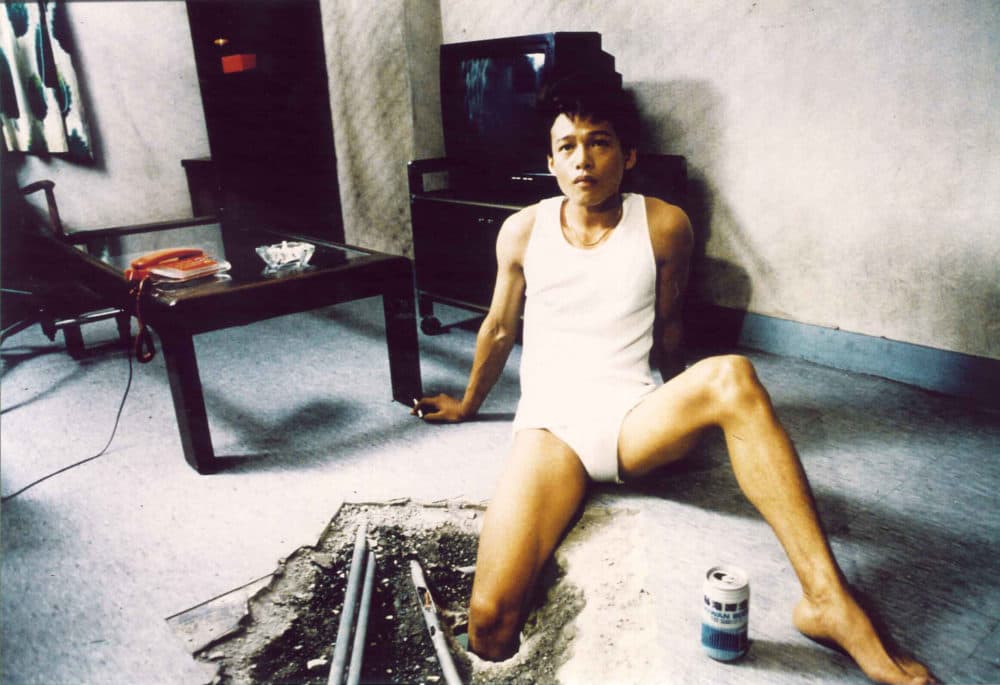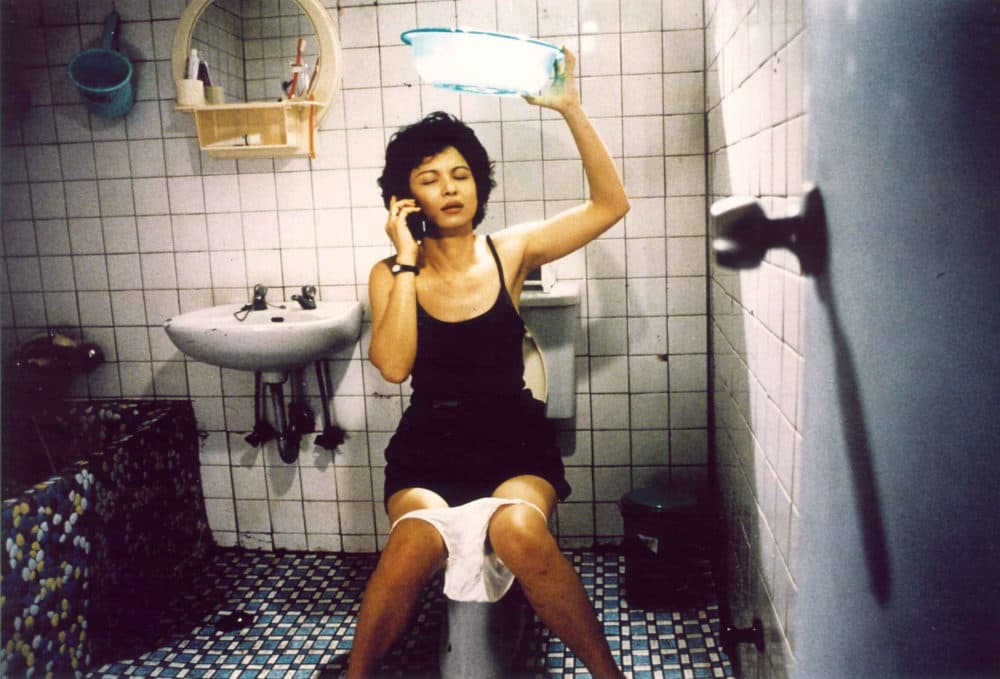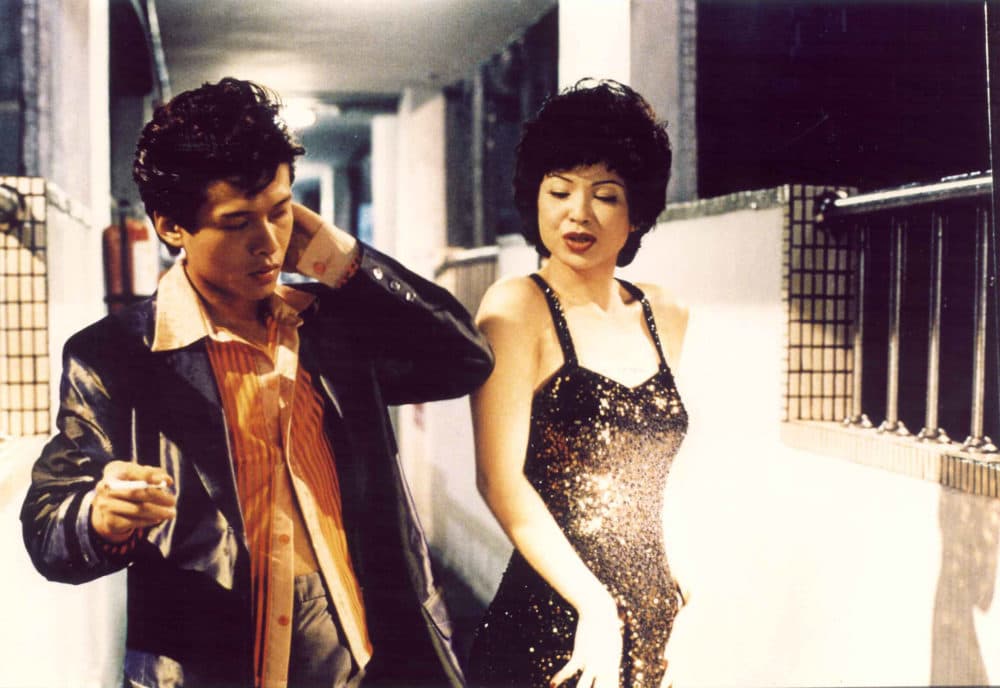Advertisement
Review
Tsai Ming-Liang's 1998 Romance 'The Hole' Might Be The Best Film About Life Right Now

As it turns out, what might be the best film about how it feels to be alive right now was already made 22 years ago. Tsai Ming-Liang’s playful pandemic romance “The Hole” is a story of lonely hearts in quarantine, longing for love amid the day-to-day drudgery of life during lockdown. It’s a deadpan musical about seeking a friend for the end of the world, following two characters who seldom speak but fall for one another through a hole in the ceiling. I love this movie.
Winner of the International Critics’ Prize at the 1998 Cannes Film Festival, it was originally conceived as part of the French television project “2000, Seen By…” — a series of 10 short-ish films in which auteurs were invited to speculate on what the new millennium might bring. The collection also included Hal Hartley’s biblical riff “The Book of Life” (which every Gen Xer remembers because PJ Harvey played Mary Magdalene) and Don McKellar’s minor-key masterpiece “Last Night,” featuring the politest, most quintessentially Canadian apocalypse in movie history. I recall the Brattle being home to special screenings of these films back around the turn of the century, so how apropos that they chose this moment to reintroduce area audiences to “The Hole” — now available in an extended, 89-minute director’s cut via the theater’s virtual screening room.
It's 1999 in Taipei and most of the city has been evacuated due to a global pandemic. Scientists still can’t pinpoint exactly where the outbreak began, but foreign health officials have been referring to it as “the Taiwan virus” and insisting symptoms be called “the Taiwan flu.” (Sound familiar?) Our tale takes place inside a crumbling, nearly empty apartment complex after most of the residents have fled. Even the building’s plumber can’t be bothered to stick around and finish his work, leaving a gaping hole in the living room floor of an apartment occupied by a downcast drunkard, played by Tsai’s regular leading man Lee Kang-sheng, billed in the credits as Man Upstairs.

As you might imagine, this is not a welcome development to Woman Downstairs (Yang Kuei-Mei), who’s already dealing with leaky pipes and perpetual flooding to a point where the wallpaper has begun peeling from the walls of its own accord. Most of her days are spent mopping and moving around the gigantic piles of paper products she’s hoarded, so the last thing she needs right now is a noisy neighbor puking down a hole in her ceiling whenever he stumbles home too loaded to make it to the bathroom. Angry notes are left. Plumbers are called, to little avail. In case you haven’t guessed already, this not a picture heavy on plot.
Instead, it’s a movie about loneliness and the cold comforts of routine when every day is indistinguishable from the next. Each morning the man dutifully goes downstairs and opens his grocery stand, where he sits around pounding beers waiting for customers who never arrive. When not mopping, she tries cooking different meals and moisturizing with egg whites, listening to news updates on the radio about the accelerating virus. “The Hole” conjures that strange dissonance a lot of us have been experiencing during the past year, with seismic historical events overlapping simultaneously with stretches of soul-crushing boredom and oppressive inertia. In this movie, it never once stops raining.
Our emotional release arrives via lavish fantasy interludes, during which Yang lip-syncs the songs of 1950s Hong Kong superstar Grace Chang, decked out in dazzling costumes with a bevy of backup dancers. The musical numbers not only chart her inner life but gradually grow to incorporate her upstairs neighbor, who strikes James Dean poses with his cigarettes in fine mid-century style. They bop around to some adorably rudimentary choreography, notably never once leaving the hallways and stairwells of their crummy building complex. It’s a sensation that might feel familiar to a lot of people after these past six months, when you’ve been cooped up in the same place for so long that even your wildest dreams now take place inside your tiny apartment.
Advertisement

Since his 1992 debut “Rebels of the Neon God,” Tsai has long been fixated on the alienation of contemporary city life, and one could wisecrack that his closed-off characters are already emotionally well-prepared for a pandemic. But what makes “The Hole” such a wondrous movie experience — especially right now — is how palpable he makes their yearning for human connection. These neighbors only actually talk once or twice the entire movie, yet are almost never not thinking of one another. (She has long, imaginary erotic phone calls with him, while he shimmies his foot and then entire leg down the hole when she’s not at home, as if physically consummating this weird relationship.)
Scenes in which the two attempt to avoid each other’s gazes on the landings outside their apartments play like a dumpier dry run for Tony Leung Chiu-wai and Maggie Cheung trying not to make eye contact in the stairwell two years later in Wong Kar-wai’s magisterial “In the Mood for Love.” But this isn’t the swoony tragedy of Wong’s unrequited passion, rather something goofier and more inviting. "The Hole" is endearing in the way these awkward dance numbers are whenever the characters miss a step, grounding the grand romantic gestures in accessible, everyday banality. I’m sitting here smiling just thinking about it.
“The Hole” is available to rent via the Brattle Theatre’s Virtual Screening Room.
